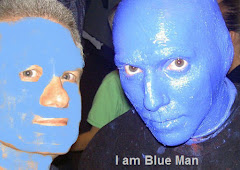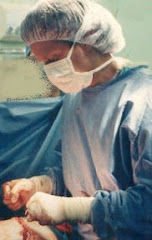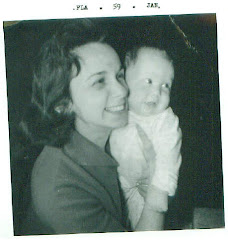 Ok, who IS this guy? He has been coming to our class now for several of the last sessions. He's not a student and he sticks out like an endospore on a malachite green positive stain.
Ok, who IS this guy? He has been coming to our class now for several of the last sessions. He's not a student and he sticks out like an endospore on a malachite green positive stain.
I'm pretty sure he is new faculty, likely taking over the class in which he sits. But we've not been formally introduced. I know I'm a bit of a off the cuff sorta guy, but my Mama and Pop taught me well...when someone is new to the room, you introduce him or her to the folks you are with. I know the instructor knows who he is 'cause I've seen them talking. So, why not introduce him to the group? It's rude, it's downright obnoxious. Worse, he came over to our small group discussion and looked over my shoulder at my computer (the last inner sanctum I actually control) and picked up the book I was reading (A BRS review book on the subject). Ugh!! God knows what kind of gram negatives, salmonella or clostridia are riding bareback on his hands. I'm going to disinfect, sterilize, and autoclave (121 deg centigrade) the book when I get home today.
 This place is unbelievable. Schools in general are unbelievable. We've been bitching about the communication for months. Treat students with honesty, and respect and the results are amazing. Treat students continually in a manner that has them defensive, and imposed upon, and you get...this! It's so simple..don't you get that? " Good morning everyone. You'll notice a new face in class today who is going to be walking around and listening to class. Everyone, I'd like you to meet Dr. So and So; And by the way, his hands are not infected with various and sundry microorganisms so allow him to fondle your books at will."
This place is unbelievable. Schools in general are unbelievable. We've been bitching about the communication for months. Treat students with honesty, and respect and the results are amazing. Treat students continually in a manner that has them defensive, and imposed upon, and you get...this! It's so simple..don't you get that? " Good morning everyone. You'll notice a new face in class today who is going to be walking around and listening to class. Everyone, I'd like you to meet Dr. So and So; And by the way, his hands are not infected with various and sundry microorganisms so allow him to fondle your books at will."
I am continually amazed at how academia works, or doesn't. The halls of ivy, kudzu, or (in my case) palm fronds, is filled with people playing elaborate parts and no clue at what human interaction is when dealing with students. I think there is a cultural thing to about students as lowly waifs, worth no more than a string of blue beads. Why is it that the most simple tasks become so complicated in academia?  Like my prof uncle told me when I began teaching..."I hope you know what you are doing, because they haven't a clue about what they are doing." He was so, so right.
Like my prof uncle told me when I began teaching..."I hope you know what you are doing, because they haven't a clue about what they are doing." He was so, so right.

















